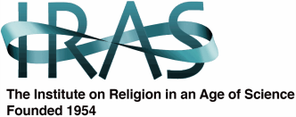The CRISPR Apple on the Tree of Knowledge:
Bioengineering, Gene Editing, and the Human Future
June 22–29, 2019
Learn more about our speakersRegistration now open!$225 for members of IRAS and Partner or Sponsor Organizations
$325 for non-members Star Island offers discountsDiscounts are available for first time attendees, former Pelicans, folks who haven't come in a while, and others. Check out the discounts page below.
IRAS Scholarships availableIRAS offers a range of fellowships and scholarships for students, seniors (over 55) and the top abstract submissions.
Call for papersDeadline was March 1, 2019.
Call for postersDeadline was May 15, 2019.
Have more questions? |
2019 IRAS Conference StatementHuman gene editing is quickly outstripping the decision-making mechanisms we have in place for approving or regulating technology usage. The technology to directly manipulate the genomes of plants, animals and even humans is developing rapidly and is already in use. Can it be rationally managed and applied ethically? What are the medical, economic, environmental, and social consequences of genetic manipulation? At this conference, scientists, theologians, religious scholars and ethicists will offer illuminating and thought-provoking perspectives on the issues surrounding the gene-editing technology known as CRISPR. (1) Scientists will explain the technique of gene editing with CRISPR and ethicists will ponder the impacts on society, from pest control to designer babies. What are the implications for agriculture and world hunger? What about medical advances that are too costly for most of the world? Theologians and religious scholars will discuss how we understand human nature and responsibility from within various religious traditions such as Christianity, Islam, Judaism, Buddhism and Hinduism. Most fundamentally, we will explore ethical issues such as therapy versus enhancement; species elimination versus global epidemic; germline intervention; and the long-term effects of bioengineering and genome editing that are within the realm of CRISPR possibility.
Program Co-Chairs: Arvin Gouw and Ted Peters Conference Co-Chair: Maynard Moore; Co-Chair for Operations: Abby Fuller ¹Clustered Regularly Interspaced Short Pallindromic Repeats (CRISPR) and the CRISPR associated protein 9 system (CRISPR/Cas9) are a bacterial antiviral mechanism which can be used as a genetic editing tool with the ability to target a specific region of a DNA sequence and insert a given gene.
Learn more about our topicTed Peters introduces the 2019 IRAS Conference
|
Copyright by The Institute on Religion in an Age of Science
Proudly powered by Weebly
